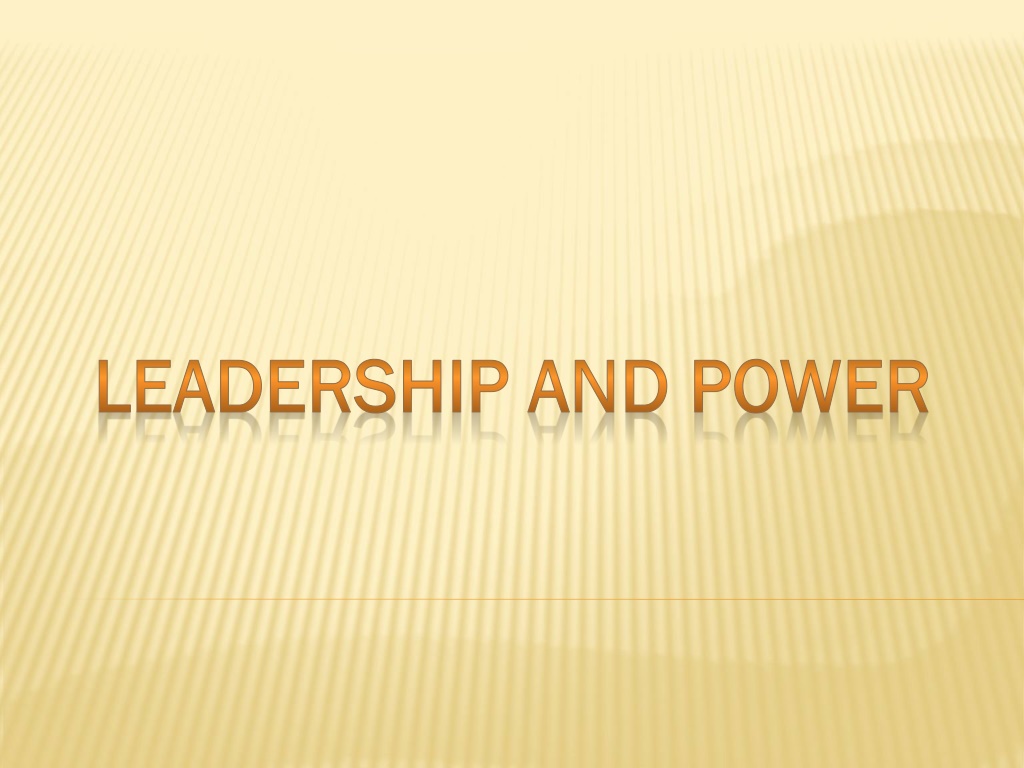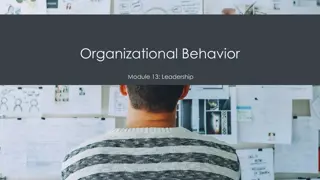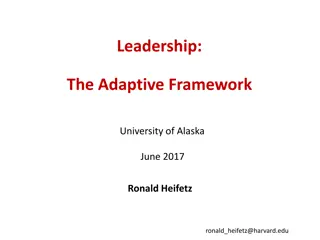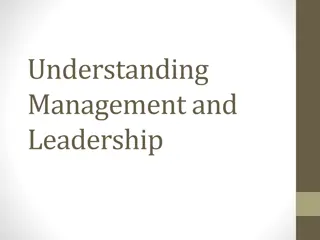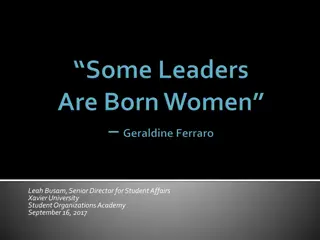Understanding Leadership and Power Dynamics
Power and leadership are interconnected concepts, with power being the measure of a person's ability to influence others. Leaders have power in various situations, but it does not necessarily mean having power over people. Effective leaders balance their use of power with knowledge and trust, knowing when to be directive, delegate, or consultative. Different sources and types of power, such as position power, reward power, coercive power, and information power, play roles in influencing individuals within organizations.
Download Presentation

Please find below an Image/Link to download the presentation.
The content on the website is provided AS IS for your information and personal use only. It may not be sold, licensed, or shared on other websites without obtaining consent from the author. Download presentation by click this link. If you encounter any issues during the download, it is possible that the publisher has removed the file from their server.
E N D
Presentation Transcript
LEADERSHIP AND POWER LEADERSHIP AND POWER
Power is a measure of a persons ability to control the environment around them, including the behavior of other people. o The term authority is often used for power, perceived as legitimate by the social structure. Power can be seen as evil or unjust: indeed, all evil and injustice committed by man against man involve power. The use of power need not involve coercion (force or the threat of force).
Leadership and power. Leaders have power in situations. This does not necessarily mean that leaders should or do have power over people. Power is simply the right to provide leadership. As leadership involves influence over people, power is usually given by the group to the leader. So the group can take the power away if hey are not satisfied with the leader. The exercise of power is a complex process and appears to be dependent on context, personality and expertise.
To exercise influence, a leader must have Power the decisions and control resources. Power is the third pillar of leadership, the other two being knowledge and trust. Effective leaders use power appropriately, and know: When and how to be directive and when to delegate: and When and how to be consultative, providing guidance instead of being directive. Sources and Types of Power Sources and Types of Power Power the potential or ability to influence
Position Power: Most obvious and important Position Power: Most obvious and important Also called Legitimate Power refers to power of an individual because of the relative position It is formal authority delegated to the holder of the position Is legitimate power enough to produce effects on others or influence them as desired by leader? Leader team of experts. (Doctors)
Position Power: Most Obvious and Important Position Power: Most Obvious and Important S. S. No No 1 Source of Position Source of Position Power Power Legitimate Power: the lawful right to make a decision and expect compliance is called legitimate power Reward Power: the authority to give employees rewad for compliance is referred to as reward power. Coercive Power: the power stemming from noncompliance : it is based on fear. Information Power: the power stemming from formal control over the information people need to do their work. The sales manager who control sales leads holds considerable power. 2 3 4
Personal Power Three source of power stem from characteristics or behaviors of the power actor: Expert Power Referent Power Prestige Power These are classified as personal power because they are derived from the person rather than from the organization.
Personal Power Personal Power Expert power: Expert power is the ability to influence other through specialized knowledge, skills, or abilities It is and individual s power deriving from the skills or expertise of the person and the organization s needs for those skills and expertise. Unlike the others, this type of power is usually highly specific and limited to the particular area in which expert is trained and qualified.
Personal Power Personal Power Referent Power: Is the ability to influence others through desirable traits and characteristics. It means the power or ability of individuals to attract others and build loyalty. It s based on the charisma and interpersonal skills of the power holder. Prestige Power stems from one s status and reputation. A manager who has accumulated important business successes acquires prestige power.
